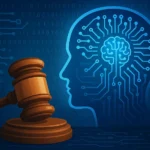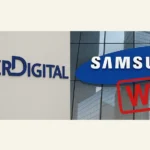Open-Source Software and Intellectual Property: Balancing Innovation and Access
- Updated on: Jan 11, 2025
- Read 6 minutes
- Published on Jan 11, 2025
Open-source software allows for free access and modification of source code, while intellectual property laws protect creators’ rights to their creations. Balancing innovation and access in this field is crucial for the growth and development of technology and industry
What are Open-Source Software and its types?
Open-source software refers to software that is freely available for use, modification, and distribution. The term “open source” refers to the fact that the source code of the software is open to the public, meaning that anyone can view, modify, and distribute the software. This is in contrast to proprietary software, which is closed-source and only available to authorized users.
There are several types of open-source software, including:
- General Public License (GPL) software: This type of software is typically used for programs that are intended to be freely distributed and modified. The GPL requires that any modifications made to the software must also be made available to the public under the same license.
- Lesser General Public License (LGPL) software: This type of software is similar to GPL software, but allows for the software to be integrated into other proprietary software.
- MIT License software: This type of software is typically used for software that is intended to be used in commercial projects. It allows for the software to be modified and distributed but does not require that any modifications be made available to the public.
- Apache License software: This type of software is similar to the MIT License, but includes specific terms for patent protection.
- BSD License software: This type of software is similar to the MIT License, but does not include specific terms for patent protection.
Advantages and disadvantages of open-source software
Open-source software has several advantages, such as:
- Cost: Open-source software is free to use, modify, and distribute, which can save organizations and individuals money on software costs.
- Flexibility: Open-source software allows for customization and the ability to adapt the software to specific needs and requirements.
- Security: The open-source community can quickly identify and fix security vulnerabilities, making open-source software more secure.
- Collaboration: Open-source software allows for collaboration and the sharing of ideas among developers.
However, open-source software also has some disadvantages, such as:
- Limited Support: Open-source software may not have the same level of support as proprietary software.
- Compatibility: Open-source software may not be compatible with certain proprietary software or hardware.
- Quality: Open-source software may not have the same level of quality as proprietary software, as it may not have been through the same level of testing and development.
- Legal uncertainty: Open-source software may not be compliant with certain laws or regulations, and may have legal risks.
Intellectual Property and Open-Source Software
Copyright and open-source software
Copyright is a form of intellectual property that protects the creators of original works, such as software, from unauthorized use. Open-source software is released under a specific open-source license, which allows for the use, modification, and distribution of the software without the need for permission from the copyright holder. However, the copyright holder still retains the rights to the software and any derivative works created from it, as per the terms of the open-source license.
Patent and open-source softwareTop of Form
A patent is a form of intellectual property that grants exclusive rights to an inventor for a certain period of time, in exchange for disclosing the invention to the public. Open-source software can be protected by patents, but the terms of the open-source license dictate how the software can be used, modified, and distributed. In general, open-source licenses do not allow the use of patents to restrict the use of the software. Some open-source licenses, like Apache licenses, include explicit terms for patent protection.
Trademark and open-source software
Trademark is a form of intellectual property that protects the use of certain names, logos, and other distinctive signs to identify a product or service. Open-source software can be protected by trademark, but the terms of the open-source license dictate how the software can be used, modified, and distributed. Open-source licenses generally allow the use of trademarks to identify and promote the software but prohibit the use of trademarks in a way that may create confusion or imply endorsement by the trademark holder.
Trade secret and open-source software
Trade secret is a form of intellectual property that protects confidential information that gives a business a competitive advantage. Open-source software is typically released publicly, and the source code is available for anyone to view, modify and distribute. This means that trade secret protection does not apply to open-source software, as the information is not kept confidential. However, open-source software can include proprietary components that are trade secret and protected by NDA or other legal agreements.
Balancing Innovation and Access
The role of open-source software in innovation
Open-source software plays a crucial role in innovation by allowing for collaboration and the sharing of ideas among developers. It also allows for quicker development and problem-solving as developers can build on existing code. The availability of the source code also allows for the community to identify and fix bugs, and make improvements more efficiently, which can lead to faster innovation. Additionally, Open source allows for more developers to contribute to a project, leading to a wider range of perspectives and ideas, that can also contribute to innovation.
The role of intellectual property in protecting innovation
Intellectual property (IP) laws, such as patents, trademarks, and copyrights, play an important role in protecting innovation by providing creators and inventors with exclusive rights to their creations. This allows them to control how their creations are used and to prevent others from profiting from their work without permission. IP laws provide an incentive for inventors and creators to innovate by giving them a way to monetize their creations, which can encourage the development of new technologies and products. Thus IP laws play a crucial role in protecting innovation and promoting progress in science and technology.
The challenges of balancing innovation and access in open-source software
Balancing innovation and access in open-source software can be challenging because it requires finding the right balance between protecting the rights of creators and making the software widely available. This can be difficult as the open-source nature of the software means that it can be easily modified and distributed, making it hard to control and protect. Additionally, open-source software can be subject to legal challenges, such as patent or trademark infringement, which can also be difficult to navigate. Finding the right balance between protecting intellectual property rights and promoting innovation requires careful consideration of the specific circumstances.
Case studies
Examples of successful open-source software projects
Some examples of successful open-source software projects include Linux, an operating system used in servers, supercomputers, and mobile devices, Apache, a web server software, and WordPress, a content management system. These projects have a large user base and a dedicated community of developers who continuously improve and innovate the software. Additionally, many popular programming languages like Python, Java, and Ruby are open-source, as well as, many scientific, engineering and data analysis software. These projects have proven to be reliable, efficient and widely adopted in various industries.
Examples of intellectual property disputes in open-source software
Examples of intellectual property disputes in open-source software include the ongoing legal battle between Oracle and Google over the use of Java in Android, and the lawsuit between SCO Group and IBM over the use of Unix code in Linux. These disputes highlight the challenges of balancing the open nature of open-source software with the need to protect intellectual property rights. Such disputes can also create uncertainty and legal risks for companies and individuals using open-source software, and they can be costly and time-consuming to resolve.










No comment yet, add your voice below!